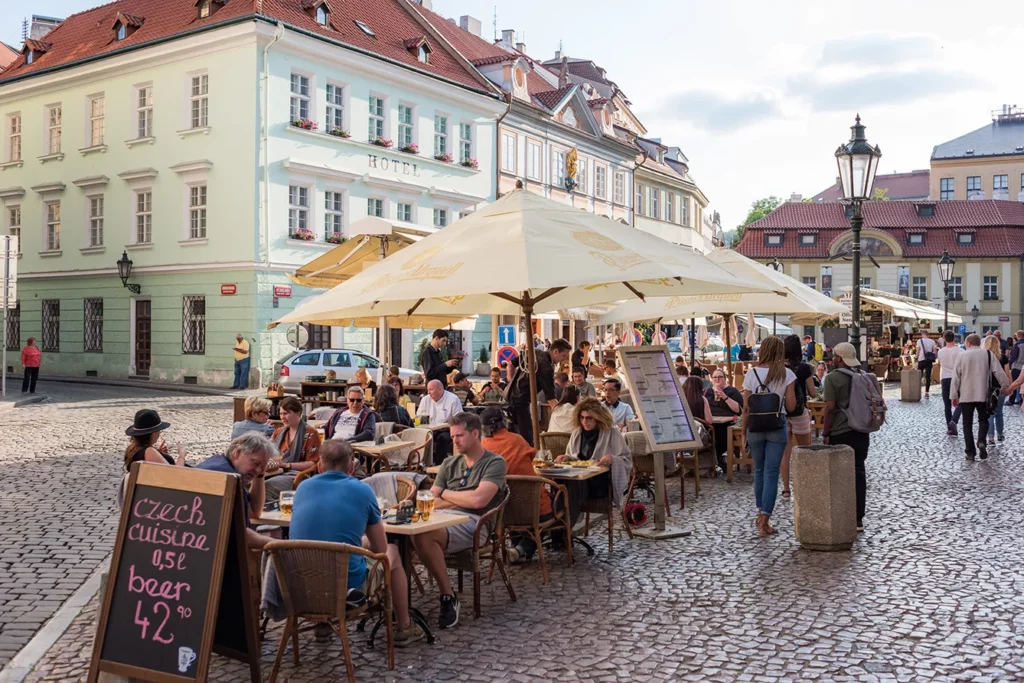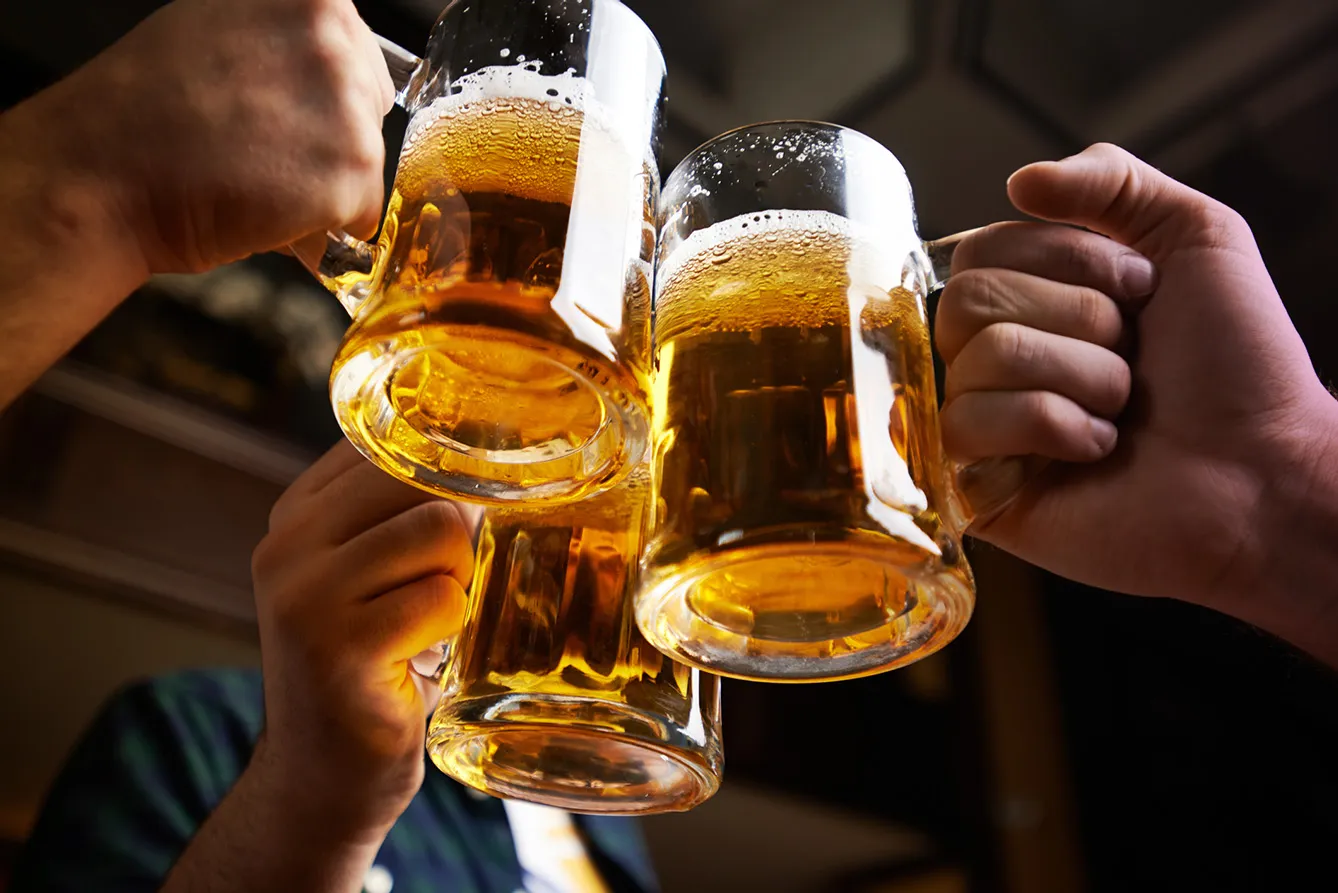If you ask Czechs which beer is the best in the world, they don’t hesitate for a second: Our beer! And it wouldn’t be hard for the Czechs to believe it, either. Several factors at play prove that the Czechs are right. It is easy to find a source of beer in the Czech Republic. Be it village pubs, small-town bars, city beer gardens, upscale restaurants, or just ordinary tap windows along tourist routes. Beer culture is so strong in the Czech Republic that finding restaurants where beer was cheaper than Coca-Cola was no problem not so long ago. So, just as it is said in the United Arab Emirates that oil is more affordable than water, beer in the Czech Republic was the same.
Home of beer
But it is no wonder that Czechs are so proud of this fermented drink. The Czech Republic is the home of modern beer. Better to say Pilsner-type beer. It originated in 1842 in the town of Pilsen in western Bohemia. And it was from West Bohemia that the beer spread all over the world. The Pilsner Brewery perfected the bottom fermentation process of beer and thus became the cradle of modern European brewing. But it is not that Czech brewing is only about Pilsner beer. The oldest brewery in the Czech Republic is the one in Prague’s Brevnov Monastery. It was founded there by monks as early as 993!
Tens of thousands of tourists head to Prague every year in search of one thing: beer. For years, Prague has been a destination for party tours or stag parties for Brits, Danes, Norwegians, and Swedes.


A yellow beer bike gives a guided tour of Prague while tourists sip on beers. Photo: iStock.com / Marc Dufresne
An unbreakable record
The question is whether the fact that Czech beer is so good or has a long historical tradition is behind the record that the Czech Republic has held for 28 consecutive years. Yes, you heard right: 28! It is a record for the number of liters of beer drunk per person. And what is this magic number? 181.7 liters per person per year. Yes, you heard right, just under 182 liters. What does this number mean? Every Czech, from the youngest to the oldest, drinks an average of 363 large half-liter beers a year.
And it doesn’t look like the Czechs and their record are in danger next year. That would require Austrians to double their beer consumption. Austrians drink 96.9 liters of beer a year and hold the second position. The Poles are third, with 96 liters per person per year. But there is a downside to this record and the omnipresence of alcohol. According to statistics, 68% of Czech children drank alcohol before age 13, compared to the European average of 47%.
Economic benefits of brewing
Not only does beer taste good, it is also an essential source of revenue for the state budget. Over 20 billion Czech crowns (EUR 830 mln) flow from beer consumption through value-added and consumption taxes into the state budget annually. Brewing as an industry is also an essential pillar of the Czech economy. The brewing sector contributes more than CZK 47 billion (EUR 2 bln) annually in taxes and employs 65,000 people.
The total economic contribution, including direct, indirect, and induced sales in the hospitality and related sectors, is an impressive CZK 343 billion (EUR 14.3 bln). Brewers are also important customers of Czech farmers, paying around CZK 20 billion (EUR 830 mln) annually for hops and malt. Interconnectedness with other sectors of the Czech economy is also essential. One position in brewing creates one position in agriculture, two in suppliers, three in hospitality, and one in retail. One position thus creates seven more.
Conquering the world through beer
Although the Czech Republic ranks 18th in beer production per net hectolitres, it dominates among beer-exporting countries. It ranks a surprising 8th with a total export volume exceeding 305 million euros, overtaking such giants as China. An interesting phenomenon is that the export of non-alcoholic Czech beer has significantly surpassed the export of alcoholic beer. And even five times.
Slovakia, Germany, and Poland remain the most important export markets within the EU, with Hungary jumping to fourth place thanks to a recent significant 36% growth. As in previous years, South Korea and the USA remain the most important export markets outside the EU. But Czechs are not exclusively conservative and nationalistic drinkers. They like to taste new foreign beers. The import statistics prove it. The Czech Republic imports 400,000 hectolitres of foreign beer a year, mainly from Poland, Hungary, and Germany, with Mexico remaining the largest source of imports from outside the EU.
Beer: part of the Czech past and future
As beer is often called, liquid gold has been brewed in Bohemia for over a thousand years. It used to be brewed in almost every town, but today it is a matter of experts and state-of-the-art technology. The Czech Republic also boasts an enormous variety. From microbreweries, of which there are 370 throughout the country, to large ones, of which there are 45.

Around 90% of production comprises light beer of the abovementioned Pilsner type. Beer is thus an essential part of Czech history and strengthens the excellent reputation of the Czech Republic throughout the world. That is one of the reasons why beer was voted one of the Seven Wonders of the Czech Republic in a national poll in 2010. In 2008, ‘České pivo’ was registered as a Protected Geographical Indication of the EU. In addition, the Czech Association of Breweries and Maltsters seeks to inscribe Czech beer culture on UNESCO’s list of intangible cultural heritage. So far, it has submitted a regional registration proposal, followed by the national level. It could be possible to achieve global registration in 2026.
However, Czechs will continue to drink their national drink regardless of its international status. In addition, a new citizens’ initiative has been launched with the dual aim of drinking beer and helping the state budget, which is facing historic deficits, through the taxes it collects. The slogan is clear: Drink beer, help your country!







